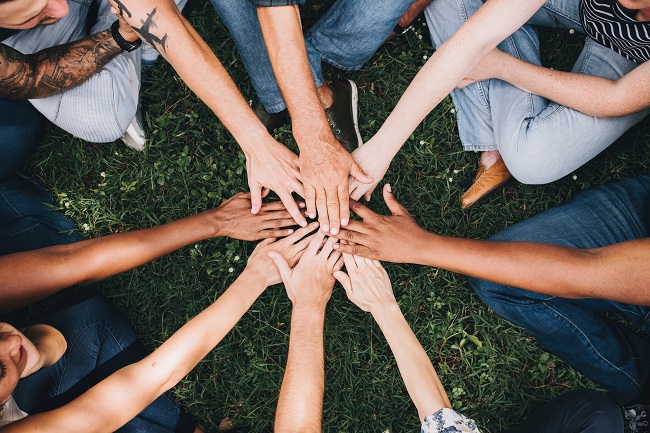 We have two duties to other people. We have the duty to help other people, whether or not they are related to us. And we have the duty not to harm other people by our words or our actions. Sounds simple, doesn’t it? But it is our inability to understand these duties that results in most of the problems in this world.
We have two duties to other people. We have the duty to help other people, whether or not they are related to us. And we have the duty not to harm other people by our words or our actions. Sounds simple, doesn’t it? But it is our inability to understand these duties that results in most of the problems in this world.
Let’s look at our first duty, the duty to help other people. That mean that within our capabilities, we are responsible to help others. In the Gospel of Luke, Jesus says, “To those whom much is given, much will be required.” That means, if you are wealthy, you are expected to use your money to help others. Why? Because that money isn’t yours. It is God’s. God simply entrusted you with that money to use it to serve the world.
Similarly, if you have certain talents, you are required to use them to help others. For instance, if you are a good cook, you should be doing more than cooking for yourself. You should be using your skills to feed others, in some way. Or if you have musical abilities, you should be using them to entertain and offer comfort to others. God doesn’t give us talents and skills to be used solely for ourselves, or for our families. They are given to us to benefit the world in some way.
However, there is a limit to our duty to others. We are obliged to help other people. We are not obliged to make them happy. I have learned that you can be kind and helpful to others, and they still can be miserable. Why? Because they are miserable people. It is just that simple. If you are being good to them, and they, nevertheless are unhappy, then they are choosing to be unhappy.
The problem with unhappy people is that they will come up with convoluted reasons as to why other people are the cause of their unhappiness. Some people simply don’t want to take ownership of their own mental health.
I once had someone give me a list of 7 reasons as to why I, personally, had made that person unhappy. I was always nice and kind to this person, but they did not want to take responsibility for their mental health. Instead, they came up with long, exhausting arguments as to why I was making them unhappy. This individual had no understanding of the fact that other people can’t make you happy. Other people can give you temporary moments of joy or contentment, but true happiness comes from within.
So, there is a limit to our responsibility to others. We are responsible to be helpful and kind to others. Period. Nothing more. We aren’t responsible for their happiness. We can’t be. Happiness is a personal matter.
Our second duty to others is to not intentionally harm them. You would think this would go without saying. Unfortunately, people sometimes forget this simple duty.
The duty not to hurt others does not have exceptions. That means that if you are tired, hungry, or feeling badly about yourself, you still can’t insult other people. That means that if someone is rude to you, you don’t have the right to be rude back. That means that if you are unhappy with your life, you don’t have the right to make everyone else in spitting distance unhappy too.
Unfortunately, we, as human beings, are very creative in how we justify our actions when we choose to be unkind to others. “I had a tough upbringing.” “My parents weren’t nice to me.” “I don’t like my spouse.” “My boss is mean to me.” “I got divorced.” “I’m sad.” Oh dear. Those are all unfortunate tales of woe, but none of them is an excuse for being unkind to other people. Our black-and-white duty is to not harm others. There is no gray area in this rule.
This week, consider your duties to others. Make sure that you are doing your best to always help, and not harm, each person that you encounter. In doing so, you will most assuredly make this world a much better place.
(Photo Courtesy of Pexels)

